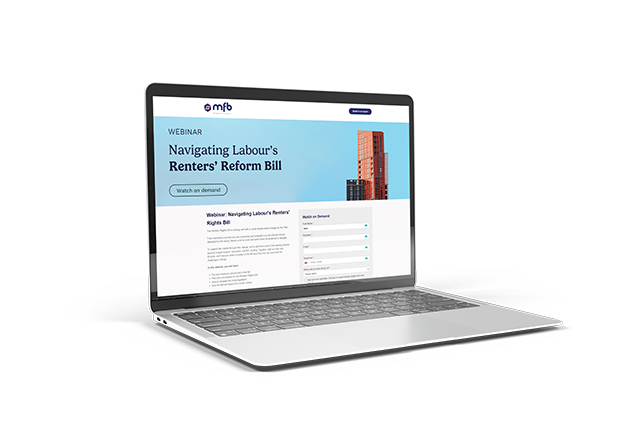How will Labour’s Renters’ Rights Bill change the Private Rental Sector? Here, we break down what’s included and examine what this means for landlords.
With little detail surrounding Labour’s plans for their Renters’ Rights Bill in the King’s Speech, what legislation should landlords expect?
The new Labour Government have now published long-awaited details of their plans to change the Private Rental Sector (PRS). The Bill, expected to be marginally tighter on landlords than its predecessor, the Conservative Renters’ Reform Bill, intends to “give greater rights and protections to people renting their homes.”
The Government has released its background notes on the Bill, commenting:
“The Government is determined to address the insecurity and injustice that far too many renters experience by fundamentally reforming the private rented sector and improving the quality of housing in it.
We value the contribution made by responsible landlords who provide quality homes to their tenants and believe they must enjoy robust grounds for possession where there is good reason to take their property back. However, the Government is determined to level decisively the playing field between landlord and tenant by providing renters with greater security, rights and protections and cracking down on the minority of unscrupulous landlords who exploit, mistreat or discriminate against tenants with bad practices such as unfair rent increases intended to force tenants out, and pitting renters against each other in bidding wars.”
What’s included in Labour’s Renters’ Rights Bill?
Abolishing Section 21 ‘no fault’ evictions
The highly contentious plans to abolish Section 21 were confirmed in the King’s Speech, but the Government has promised to introduce “new clear and expanded possession grounds.” This should allow landlords to reclaim their properties; however, the sector must be informed of what these new grounds involve. Unless the new Government works with the PRS to establish a better system, landlords will only feel more disenfranchised.
Strengthening tenant rights
A new announcement we didn’t see in the Renters’ Reform Bill is the plan to give tenants more power over their rental homes. For example, tenants will have the right to challenge rent increases, and the Government will introduce new laws to end bidding wars.
Allowing tenants to request a pet
As in the Renters’ Reform Bill, landlords won’t be able to unreasonably refuse pets in their properties when requested in writing by their tenants. However, landlords will be able to request insurance to cover potential damage if needed.
A Decent Homes Standard
Labour will extend the Decent Homes Standard that currently applies to social housing in the UK to all privately rented properties. This should ensure all homes are safe and secure for tenants. It’s currently unclear how this will be implemented into the PRS.
‘Awaab’s Law’ to be implemented
‘Awaab’s Law’ will set legal expectations and timeframes for landlords to uphold to ensure homes are safe when they contain serious hazards. The law sets out new guidance for landlords and states that residents should not be blamed for damp and mould in rental properties. Awaab’s Law will give landlords full responsibility to identify and address any issues, structural or caused by inadequate ventilation, when it comes to mould in properties.
An online database for landlords, tenants, and councils
The Government will create a digital PRS database to collate key information for landlords, tenants and local councils. This will allow landlords to easily understand their obligations under new legislation and allow councils to target enforcement where it’s most needed.
A new property ombudsman
A new Property Ombudsman is intended to help support quicker and cheaper resolutions to disputes without the need to go to court. The main concern here is that it will be the landlord community’s responsibility to fund the ombudsman, which many worry will lean in favour of the tenant. Despite this, the Government promise this will be a fair and impartial body.
Making it illegal to discriminate against tenants on benefits or with children
The idea here is to ensure vulnerable families don’t miss out on safe and secure housing. However, the unintended consequence of scrapping Section 21 means the very tenants the government intends to protect could suffer more.
Give more powers to local councils
New powers will be introduced to give local councils better control. The Government notes this will “make it easier for councils to identify and fine unscrupulous landlords and drive bad actors out of the sector”.
Further details are needed to fully understand the extent of these new investigatory powers.
The potential impact on landlords
Of course, as with all legislation, the devil will be in the details when it comes to the full impact of Labour’s plans for the PRS. We saw countless changes and amendments to the Conservatives' Renters’ Reform Bill without any success in getting the Bill passed. Therefore, it may still be a while before we see the Government implement any of the changes listed above. It is worth noting that Labour plans to prioritise scrapping Section 21 despite ongoing uncertainty over the repossession grounds that will replace these evictions.
Speak to an expert
It’s more important than ever to seek the advice and support of one of our expert mortgage brokers. We can answer any questions you might have and help you prepare for your next property finance endeavour.
To get started, call us on 0345 345 6788 or submit an enquiry here.
